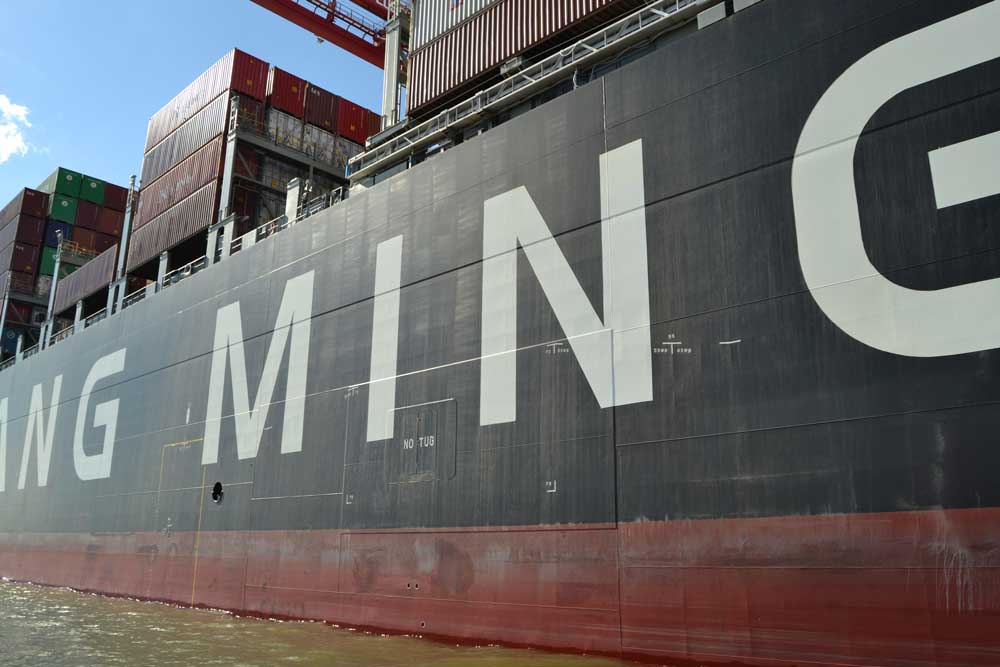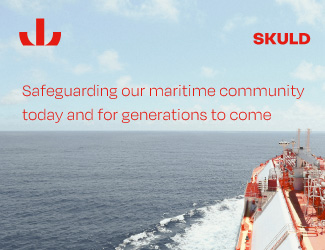Rattled by the collapse of Hanjin Shipping, the South Korean government established a shipping bank of its own to revive the country’s troubled maritime industry. Seoul’s shipping bank wasted no time and ignores controversy, reports Patrick Lee
Anxious to revive an industry that employs thousands of South Koreans, President Moon Jae-in’s administration launched a Five-Year[ds_preview] Plan in April 2018, precipitating the establishment of Korea Ocean Business Corporation (KOBC).
KOBC replaced and combined the functions of three existing bodies that were set up by previous governments to develop the local shipping and shipbuilding industries, namely Korea Maritime Guarantee Insurance, Korea Shipping and Maritime Transportation, and Maritime Exchange Information Center.
The downturn in the industry claimed its biggest casualty in South Korea when Hanjin Shipping, then the country’s largest shipping group, folded in February 2017. Hyundai Merchant Marine (HMM), now South Korea’s flagship carrier, barely staved off bankruptcy in 2016, but remains in the red.
On the other hand, South Korea’s Big Three shipbuilders, Hyundai Heavy Industries, Samsung Heavy Industries and Daewoo Shipbuilding & Marine Engineering (DSME), struggled through falling orders when the oil shock stopped drilling contractors from ordering offshore plants. Mid-sized shipbuilders such as SPP Shipbuilding and Sungdong Shipbuilding & Marine Engineering ceased operations in 2016 and 2017, after their orderbooks evaporated.
Initial capital of 3tr.KRW (1.2 bn $) was injected into KOBC. This was done through financial contributions from Korea Development Bank and the Export-Import Bank of Korea, and in-kind investments in the form of stocks in Busan Port Authority, Incheon Port Authority, Ulsan Port Authority and Yeosu-Gwangyang Port Authority.
KOBC will finance the building of more than 200 ships, including 140 bulk carriers and 60 container ships, that would be constructed in local shipyards. Applicants must have a sound business case as KOBC does not want to encourage speculative orders.
While state policy lender Korea Development Bank is already the largest ship finance provider, it has been financially strained by debts from DSME and HMM. This has resulted in the financial institution becoming major shareholder in these companies, after exchanging debts for equities.
Besides newbuildings, KOBC will also provide funding to ship owners through sale-and-leaseback deals, as well as act as a guarantor for loans granted by other financial institutions. The shipping bank wasted no time in getting to work. In June, a month before its official launch, KOBC announced 25mill. $ in subsidies for HMM, Sinokor Merchant Marine, CK Line, Namsung Shipping, Pan Continental Shipping and Dongjin Shipping. These companies are to use the funds to order eco-friendly newbuildings after demolishing older vessels.
In the very month of its launch, KOBC agreed to finance a pair of LNG-fuelled capesize bulkers that H-Line Shipping contracted at Hyundai Samho Heavy Industries, for long-term charter to local steel mill POSCO. Later in July 2018, KOBC chose 10 mid-sized ship operators to receive nearly 67 mill. $ through sale-and-leaseback deals.
Ultimately, HMM’s survival is of paramount importance. In August 2018, during the signing of an agreement with the Korea Shipowners Association, KOBC’s CEO, Hwang Ho-Seon, said that HMM needs significant resources to gain the necessary scale to compete against the European big boys.
He said: »It is a known fact that HMM, which is South Korea’s flagship carrier, needs support to compete against international large-scale liner operators. We will do our best, through continuous support, to prevent HMM from falling behind its competitors.«
KOBC and KDB are considering funding of 5tr. KRW (4.45 bn. $) for HMM’s fleet expansion, and this would be carried out through the issuance of bonds.
Hwang reiterated his position in October 2018, when he told local media that no resources would be spared to support South Korean ship owners.
During the same month, KOBC stood as a guarantor for 101mill. $ of loans disbursed by Busan Bank and Suhyup Bank to Polaris Shipping, SK Shipping, Heung-A Shipping and Korea Line Corporation.
It is clear that KOBC would need more than its current amount of finance, as its pledge to help local ship owners, of which many are highly leveraged, is a capital-intensive undertaking.
South Korean lawmakers have asked the government to inject more funds into reviving the maritime industry, claiming that existing efforts are not enough.
Speaking at a parliamentary session, representative Lee Man-hee of the Liberty Korea Party pointed out that the Chinese government was giving the equivalent of 50tr. KRW (44 bn. $) of support to the China COSCO group.
»We will do our best, through continuous support, to prevent HMM from falling behind
its competitors.«
Lee said, »[Based on financing agreements already concluded] we are providing 100 bn. KRW of support to companies that are undergoing some kind of integration or consolidation and 200 bn. KRW of assistance in operating capital to these companies. It has been three months since the Korea Ocean Business Corporation (KOBC) was formed but a specific business plan has yet to be developed.«
In response, the minister of oceans and fisheries, Kim Young-choon, said, »We plan to invest at least 8tr. KRW in reviving the maritime industry, through KOBC. Of this amount, 3.15tr. KRW will finance Hyundai Merchant Marine’s (HMM’s) recent order for 20 container vessel newbuildings.«
However, the South Korean government’s support for the industry has caused controversy.
On 13 November 2018, the Japanese government lodged a complaint at the World Trade Organization (WTO), alleging that South Korea contravened free-market principles by subsidising struggling shipbuilders. Particularly, loans granted by KDB, Export-Import Bank of Korea (KEXIM), KOBC, and Korea Trade Insurance Association (K-Sure), were singled out for criticism by the Japanese government.
In its complaint, the Japanese government said, »Japan is concerned about the provision by Korea, directly and/or through public and private institutions owned, controlled, entrusted, and/or directed by the Korean government, of guarantees or other types of insurance on sales-specific payments or financing on non-commercial terms.« Supporting Tokyo’s complaint is the German Shipbuilding and Ocean Industries Association (VSM), which has echoed criticism of South Korean state aid and loans.
The South Korean government has made known its intention to defend its actions and, through its Ministry of Trade, Industry and Energy, issued a terse statement that funding disbursed by KOBC and other state policy lenders is within legal guidelines.
Patrick Lee














